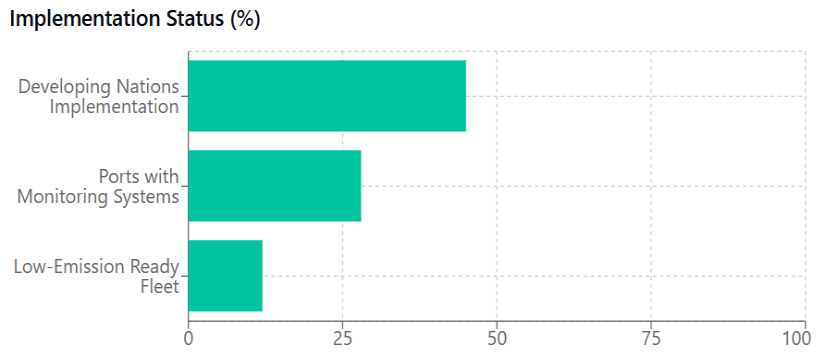The Future of MARPOL in the Context of Climate Change: Adapting Maritime Regulations
DOI:
https://doi.org/10.62012/collaborate.v2i2.68Keywords:
MARPOL, Annex VI, greenhouse gas emissions, maritime industry, climate change, global cooperation, alternative fuels, regulatory fragmentationAbstract
This study examines the effectiveness of MARPOL Convention, particularly Annex VI, in addressing maritime environmental impacts amid climate change challenges. Through literature review, policy analysis, and expert interviews across 12 countries, the research identifies critical regulatory gaps and proposes adaptive strategies. While MARPOL has successfully reduced traditional pollutants like SOx and NOx by over 70%, findings reveal inadequate frameworks for addressing greenhouse gas emissions. Key challenges include regulatory fragmentation between developed and developing nations, financial barriers in alternative fuel adoption, and limited technological readiness of the global fleet. The study proposes an implementation framework integrating regulatory reforms, financial incentives, and technological standards to achieve IMO's 2050 emission reduction targets. Recommendations include establishing mandatory GHG reduction targets, developing standardized protocols for alternative fuels, and creating support mechanisms for developing nations. The research concludes that MARPOL's future effectiveness depends on its evolution from traditional pollution control to comprehensive climate change strategies, supported by international cooperation and technological innovation.
Downloads
References
International Maritime Organization, “Fourth IMO GHG Study 2020: Executive Summary,” International Maritime Organization, London, United Kingdom, 2020.
International Maritime Organization, “Resolution MEPC.304(72) – Initial IMO Strategy on Reduction of GHG Emissions from Ships,” International Maritime Organization, London, United Kingdom, 2018.
S. Tan, "The MARPOL Convention: Current Regulations and Future Developments," Marine Policy, vol. 73, pp. 282-289, 2016.
J. Scott, T. Smith, and N. Rehmatulla, "Evaluating the EEDI as a regulatory instrument for increasing energy efficiency in international shipping," Energy Policy, vol. 95, pp. 172-182, 2017.
T. W. P. Smith et al., "CO2 emissions from international shipping: Possible reduction targets and their associated pathways," UMAS, London, 2016.


















